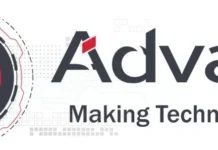By Mr. Pankaj Agarwal, Founder and CEO of Taghive
In the digital age, education technology has revolutionized the way students learn, access information and acquire knowledge. Ed-tech solutions have proved to be a game-changer in the education sector, especially during the COVID-19 pandemic, where virtual learning has become the norm. Effective ed-tech solutions empower students with independent learning methodologies that help them acquire and retain knowledge effectively.
The Indian ed-tech sector has witnessed rapid growth, especially post pandemic, thanks to enhanced internet penetration and the supportive government policies working as major accelerators. As per a market report, the sector was valued at US$ 1.45 Bn in 2021 and is expected to grow at CAGR of 27.65% from 2022 to 2029, reaching nearly US$ 10.22 Bn. And while technology is changing the dynamics of education, among other areas, there is a prominent thrust to drive ease of remote learning/ teaching, including independent learning through tech enabled processes. These are also helping to replace older formats of rote learning and helping students to access a more individualized, self-directed experience of learning, making education more about skills and learning than just about knowledge and facts.
Additionally, the recently announced 5+3+3+4 grade structure for school students, is changing the assessments to a “regular and formative” style that will be more “competency-based”. This is a huge shift from the traditional annual examination structure, upon which the entire school curriculum was hinged, for decades. This new format of ‘assessment for learning’ instead of ‘assessment of learning’ is pushing students to get back to independent learning methodologies that promote an engaged, proactive and comprehensive approach to learning.
However, India’s vast network of more than 15 lakh schools and 29 crore students, from kindergarten to grade 12, makes it a complex and challenging task to create tech innovations that can benefit every student, across the country. From challenges of poor internet penetration and inconsistent electricity to lack of access to quality digital infrastructure and tools in the rural communities, facilitating tech-based education methods of learning is an uphill task, marred by various factors, including the learning gaps in the urban and rural areas of the country.
Effective ed tech solutions that can work around these challenges and help create an equitable environment to drive critical thinking and proactive, self-learning tools, would become vital to the success of the tech empowered education system. Listed here are some key benefits of tech enabled tools that can help children transform their learning experience:

Data-driven learning
Data-driven insights are vital to creating a sustained ecosystem that not only tracks performance but also monitors progress and highlights key areas of improvement, over a given period of time. When learning at home, students can gain insights on their areas of improvement and track their progress, thereby gaining better understanding of a subject, without depending on a teacher or a parent for guidance. Not all students have the ability to grasp concepts at the same pace and data-driven insights can help students tailor courses to their needs, and spend enough time to focus on areas that need improvement. It also helps identify learning patterns, predict future outcomes, do mock tests and compare scores, while also come up with remedial actions. Additionally, data from self-assessments can also be shared with teachers, which can help them to better understand a student’s requirements and thereby enhance the efficacy in their learning sessions.
Instant feedback
One of the key advantages of leveraging tech-enabled tools for independent learning is that students can get instant feedback upon completing a test, which enables them to instantly identify mistakes, refer to study material for the correct answers and rectify re-learn the concept/ answer. Tech enabled self-learning takes away the need to rely on a teacher or instructor to receive feedback and rectify errors proactively, and instantly, thereby enabling comprehensive learning that is based on constructive feedback. Through a system of real time feedback and self-paced learning opportunities, students can effectively master independent learning and succeed in not just getting better grades but also better grip over a subject.
Promotes comprehensive learning
When learning independently, students may face numerous challenges, including distractions, lack of guidance when they are unable to grasp a concept, and, more often than not, boredom. Interactive and engaging Ed-tech tools enables gamification and microlearning which help students choose the most effective learning strategies suited to their personal needs. With a high degree of personalization, students can better understand the lessons, gain instant gratification from real time feedback on assessments, while enjoying a certain amount of freedom to pace themselves. All of these results in a more ‘understanding’ based learning than the rote mugging up of facts and numbers or concepts, thereby promoting comprehensive understanding and interest in a subject.
Easy and convenient to use
EdTech tools designed for children offer simple applications that are easy to use and allow flexibility to access learning materials from anywhere, and make constructive use of time during vacations and holidays. With increased convenience and efficacy, self-learning tools also allow options for collaboration between students across geographies, where they can form learning groups and share notes and comments with fellow students and teachers. This aids in a more engaged and interactive learning experience that can be balanced with the convenience of self-paced learning. Additionally, tools that have reduced dependency on internet and electricity, and require as little as a bluetooth and a smartphone, can go a long way in ensuring consistent learning, irrespective of access to internet or electricity.
Apart from the above-mentioned benefits of tech tools for self-paced learning, the process also boosts student confidence, reducing performance related anxiety and empowering them to choose a learning methodology that suits them best. It also encourages active learning instead of passive, rote learning and offers students with different learning styles and cognitive abilities to enjoy enough flexibility to learn at their own pace. Self-paced, independent learning tools also help children develop the ability to think independently and become more accountable and responsible. With the internet becoming cheaper and innovation in the ed-tech space growing at a breakneck speed, independent learning will transform and revolutionize the learning process in the coming years.
This year Educate yourself and develop your skills with EasyShiksha








































































